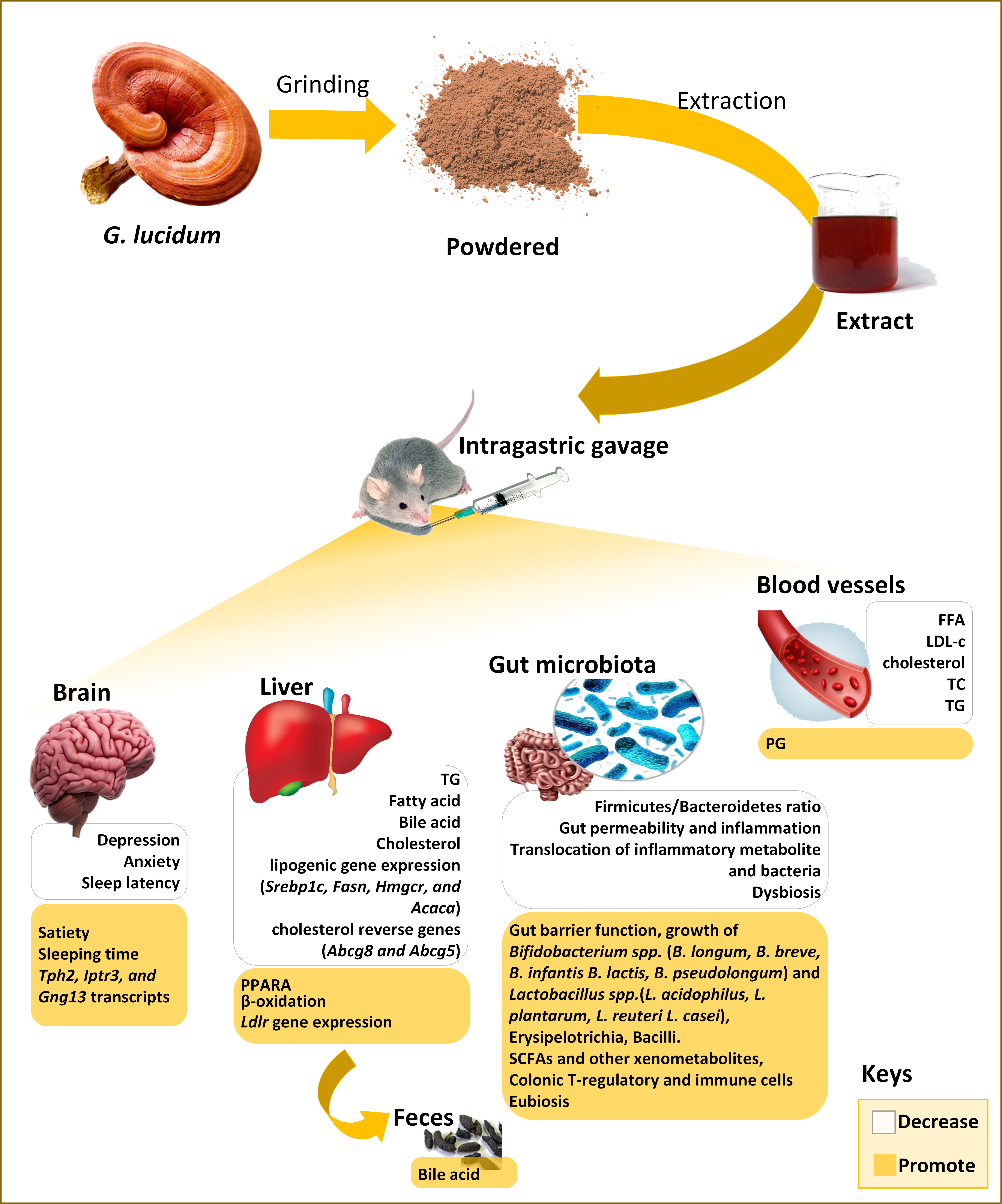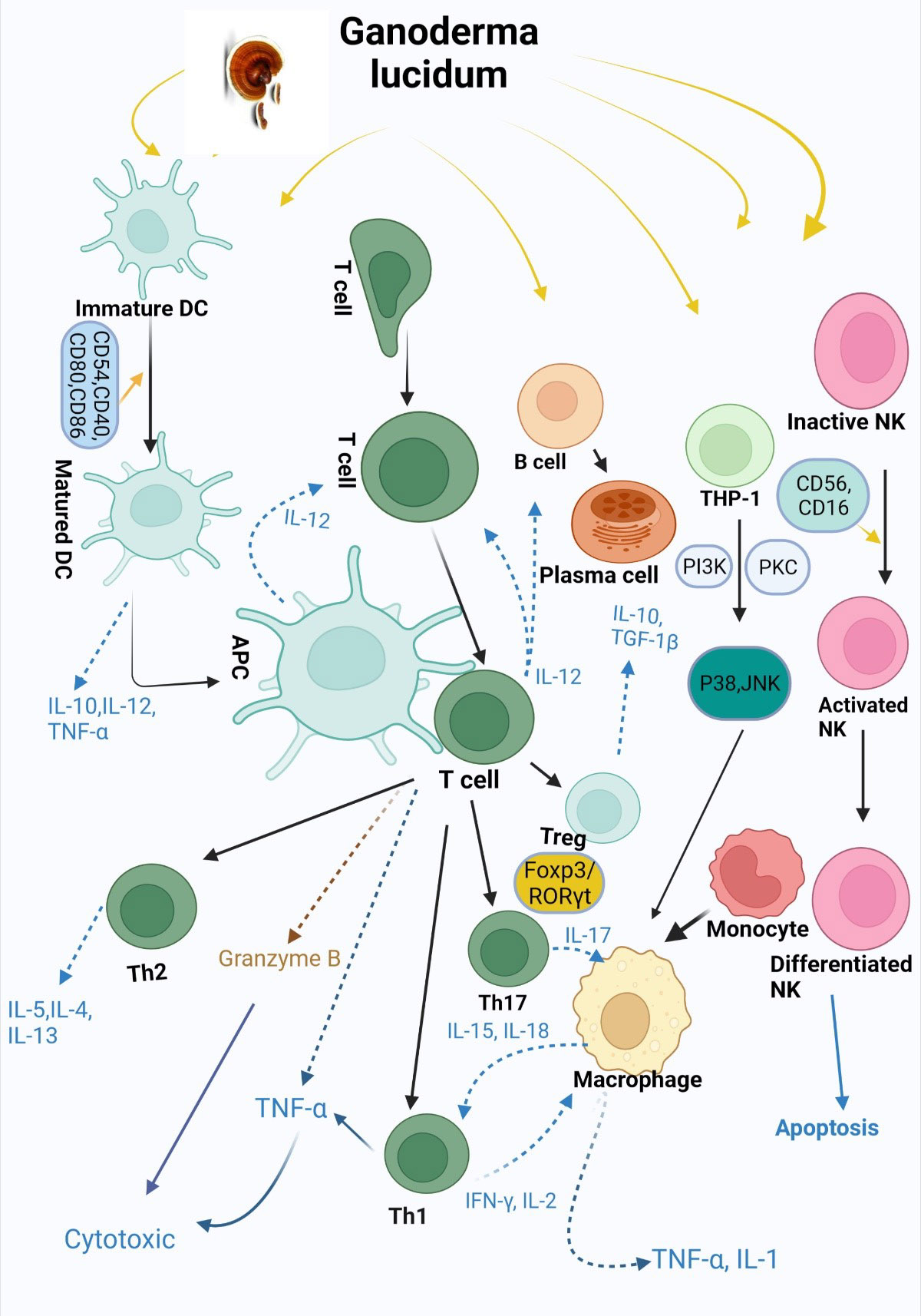Therapeutic Importance of Ganoderma Lucidum Highlighted in Recent Review Paper
|
The study concluded that, the adoption of standard pharmaceutical methods for the safety assessment, quality assurance, and efficacy testing of G. lucidum-derived compounds will be the gateway to bringing them into health establishments.
With a long history in traditional Chinese medicine, G. lucidum is a mushroom species suggested to improve health and extend life, and is evidenced to be effective in the prevention and treatment of various metabolic disorders. Although certain bioactivities and bioactive compounds of G. lucidum have been recently reviewed, till date, none has critically analyzed and collated their mechanism of actions.
The literature reported in this study was mainly collated from PubMed, Scopus databases, Web of Science Core Collection, and Google Scholar from 2010-2022, with the focus on the recent advances in defining its immunobiological mechanisms, prebiotic merits for gut health and sleep, and possible application in the nutraceuticals, cosmeceuticals, food and pharmaceutical industries as well as the safety and efficacy of G. lucidum bioactive compounds (emphasis on polysaccharides, triterpenoids and phenolic compounds), since these are essential in the prevention and management of chronic diseases.
Furthermore, G. lucidum was found to encourage the balance of the gut microbiota, boost and regulate the immune system. This activates a set of defense mechanisms that responds swiftly to invading or attacking pathogenic microbes and also played a key role in initiating and maintaining specific immunity. Hence, augmenting the body’s natural immunity greatly impacts the body’s overall immune function.
The research was supported by the National Natural Science Foundation of China, USTC and ANSO scholarship for Young Talents.

Functional merit of G. lucidum on the gut and associated metabolic disorders. (Image by Mohammed Sharif Swallah)

Immunomodulatory functions of G. lucidum-derived bioactives on various immune cells. (Image by Mohammed Sharif Swallah)
